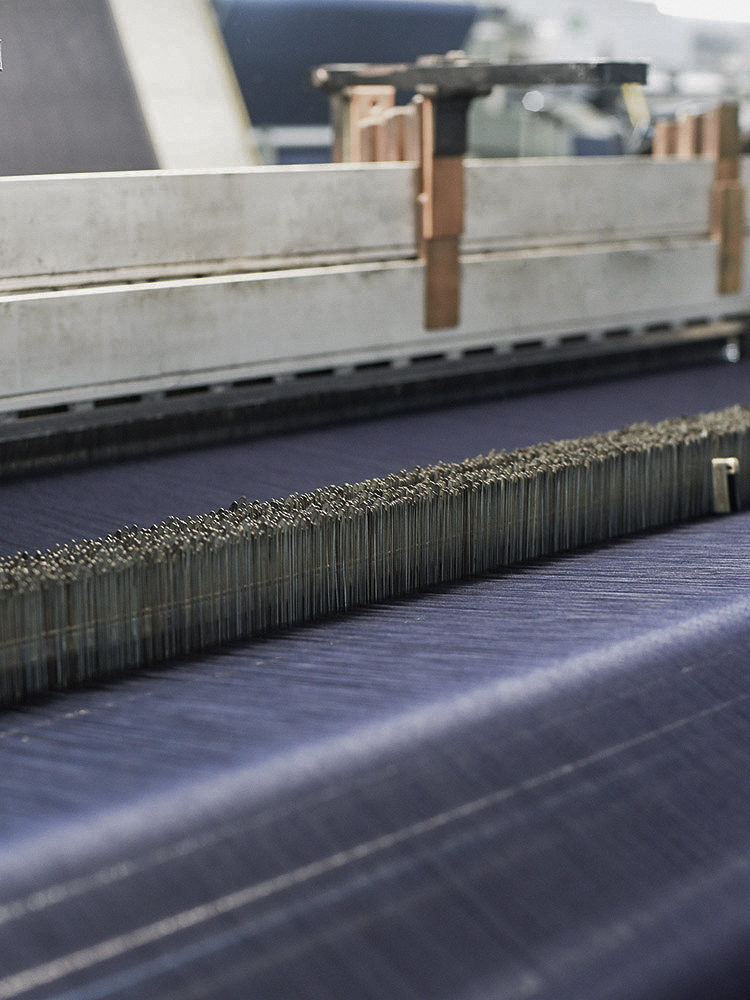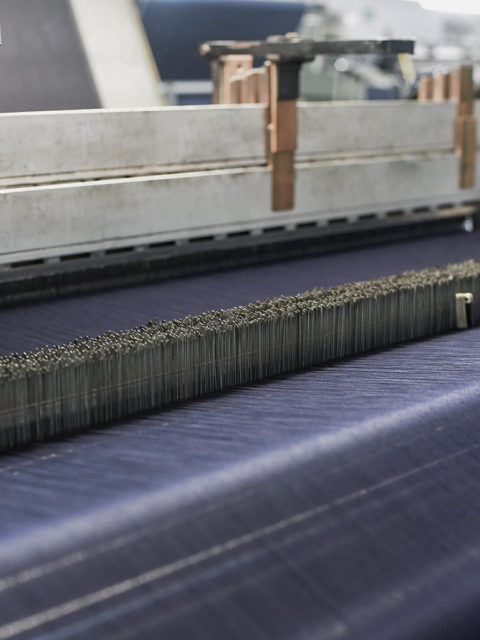Traceability
Knowing where your clothes come from is as important as the quality or style. With our traceability module you can track the journey of any AMENDI® garment, from the loom to your closet.
why?
Did you know a pair of jeans has the same basic beginnings as an apple or a rose. A seed in the dirt, sunlight, and soil. After some human toil something blooms. A mystery, a miracle. Then, poof! A perfect pair of jeans shows up in a store, like magic. But it’s not magic. It is so much more than that.
Traceability is the lodestar of our transparency initiatives. It is a way to not only understand who, what, where, and how something was made.
It is a way of organizing information so that the earthly resources and the epic amounts of human effort and ingenuity it takes to create even something as simple as a plain white t-shirt are better understood.
By being able to track the journey of your garment from the farm to your closet we hope to restore the inherent value of it. We want to remove the magic and replace it with appreciation. And hopefully build some trust along the way.
Transparency
It’s been said “every dollar is a vote,” but a vote for what? Our transparency program, which starts with our Fabrication Facts tag, is our answer to that question. Some have told us it’s not good for business to provide so much information to our customers but we think it’s the only way to do good business. We want you to know your clothes.

OUR SUPPLIERS
Our suppliers are not only some of the most respected in their categories, they are our friends. They understand our mission and have all signed a Code of Conduct to commit to both high employee working standards and innovative sustainable practices. This is a crucial part of our mission.
CHECK OUT SUPPLIERS

OCS100 Organic Content Standard
Organic Cotton Standard or OCS 100 is a certification created and controlled by Textile Exchange, a non-profit organization that is “committed to the responsible expansion of both organic cotton and all other sustainable textile value chains.” www.textileexchange.org The OCS100 is seen as a milestone for a company who seeks to eventually become GOTS certified.
For more details about the OCS 100 you can read the entire pdf description here.
Global Organic Textile Standard
The Global Organic Textile Standard or GOTS is a certification overseen and distributed by a private conglomerate that was formed in Germany in 2002. GOTS is generally considered the world leading standard for textiles made from organic fibers. Its criteria are broad and high-level and ambitious and includes social standards. For a general overview of how GOTS works we recommend these two short videos on you-tube here and here. For more in-depth information visit the GOTS website at: www.global-standard.org
OEKO Tex Standard 100
OEKO-TEX STANDARD 100 verifies that harmful substances, both legally restricted and beyond, were not used in the making of the product. This means both the product was made in an environment safe for workers and is safe to wear. OEKO TEX uses a network of partners around the world to test against a strict criteria catalog. OEKO TEX regularly audits the manufacturers that become STANDARD 100 certified. For more information on OEKO-TEX visit their website: www.oeko-tex.com/en/.
GRS - The Global Recycle Standard
The Global Recycled Standard or GRS is controlled by Textile Exchange. Some of its objectives are listed as: Track and trace recycled input materials, reduce harmful impact of production to people and environment, drive innovation in the use of recycled materials, among others. You can read the entire Global Recycled Standard v4.0 by clicking here. Or, if you have some time, you can watch the two-part webinar on you tube here and here.
Sedex - The Supplier Ethical Data Exchange
SEDEX or The Supplier Ethical Data Exchange is a non-profit organization founded in 2001 by a group of UK Retailers who wanted to standardize high-level social audit standards and supplier monitoring practices. SMETA or Sedex Members Ethical Trade Audit was created by SEDEX to standardize auditing practices and make the open sharing of audits of suppliers more efficient through a verified supplier network. Their goal is to promote and verify responsible, ethical business practices. For more in-depth information check out the SEDEX website: www.sedexglobal.com
BSCI - Business Social Compliance Initiative
BSCI or the Business Social Compliance Initiative The BSCI is a social initiative group that standardizes workers’ rights across various markets by enforcing 11 principles outlined in their Code of Conduct, which you can read here. BSCI uses the principles laid out by the International Labor Organization (ILO), the United Nations Guiding Principles on Business and Human Rights, and the Organization for Economic Cooperation and Development (OECD) among others to guide these principles.
To learn more about BSCI check out this short video here.



























